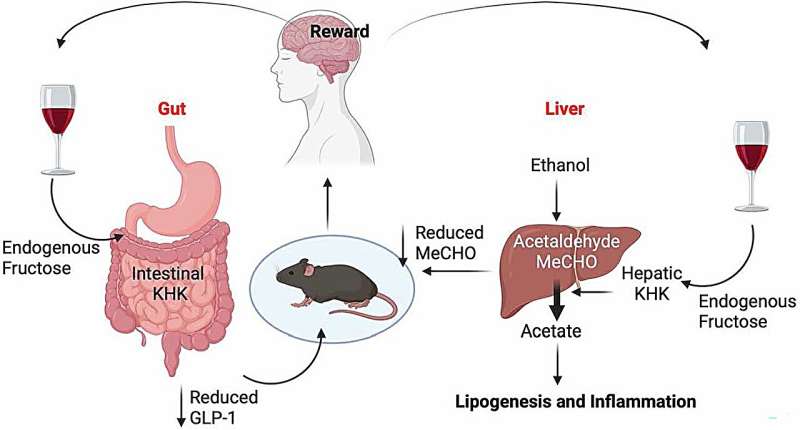In a study appearing in Nature Metabolism, University of Colorado Anschutz researchers found that alcohol triggers a metabolic pathway in the body that leads to the internal production of fructose, the same type of sugar commonly found in sweetened foods and beverages.
This process, driven by the enzyme ketohexokinase (KHK), appears to play a key role in both reinforcing alcohol consumption habits and accelerating liver damage.
Researchers discovered that mice lacking KHK showed markedly lower alcohol inclination and consumption. These mice drank less alcohol across multiple tests, including voluntary drinking and reward-based models, and exhibited reduced activity in brain regions associated with addiction.

